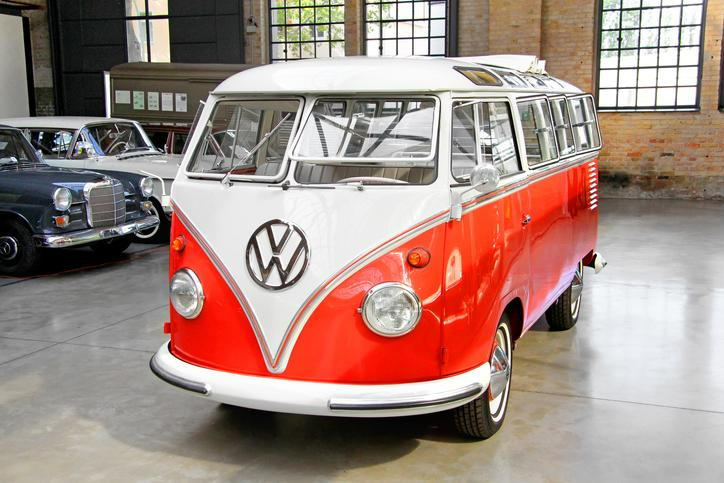Looking Back on The Iconic Volkswagen Bus
Thinking about iconic vehicles, it is easy to picture supercars, muscle cars, and cars that were designed for speed. But there is a vehicle that nearly everyone can picture immediately that went against the grain and established itself as a beloved mode of transportation despite its unusual appearance. The Volkswagen microbus was the vehicle of choice for the counter-culture movement and has held a place in popular culture for the decades following.
We want to take a quick look back at how this chipper little vehicle revolutionized the automotive industry, and how the tale is not yet over for one of the most recognizable vans to ever hit the roads.

Beginning of the Bus
After World War II, many manufacturers in Germany had to swiftly reorganize and shift their production to focus on the consumer market. Volkswagen was one of these companies, and they looked to shake the foundation of the automotive industry forever with a new type of people-mover: the van. The first VW bus models rolled onto the streets in 1950, offering several rows of seats and plenty of windows to take in the scenery.
There were two different trim levels of the van available, with one designed to transport commercial cargo and the other focused on those who needed to shuttle passengers around. Owners loved the customization options available with the bus, with some retrofitting them to be able to live out of. Because of its size and shape, the bus became a symbol of defiance against the major auto manufacturers of North America who were shifting into the muscle car era in the 50s and 60s.
The Counterculture Movement
Many younger consumers were disillusioned with the American consumer trends and viewed the bus as a fantastic alternative to trucks and station wagons. The VW bus could transport nine passengers comfortably as well as their luggage, making it perfect for road trips to music festivals and demonstrations. They painted them, parked them in a sea of other vans, and drove them to some of the most influential events of the decade.
Later Generations
The first generation of the VW bus was by far the most successful and memorable, as no vehicle like it had ever existed. The second generation began production in 1967, and while still popular, interest slowly waned as the years went by, and successive generations did not fare much better. In 2014, the bus was discontinued, instead replaced by the focus on the production of Volkswagen SUVs which had become popular.
That being said, used Volkswagen vans are still incredibly popular among collectors and as personal projects. Seeing one on the roads today is an almost exciting experience, like seeing a historical figure walk past on the street.
Future of the Bus
The story of the VW bus is not finished yet, as Volkswagen has decided the future will be electric. The ID. BUZZ is a modern electric vehicle that has already begun production in Europe and will be coming to the US market in 2024. An environmentally friendly EV is a perfect way for Volkswagen to carry on the legacy of one of its most distinguished models, honoring the ideals of former bus owners.
In the meantime, fans of the German badge can easily find used VW SUVs for sale at Hawk VW in Joliet. We have several models, from the reliable Volkswagen Tiguan to the new EV ID.4 available on our pre-owned lot so you can carry on the VW tradition at an affordable price.

